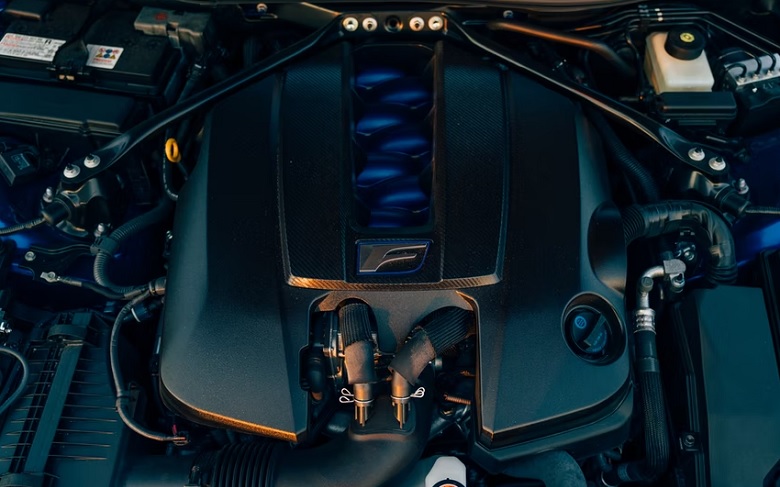You’ve come to the correct spot if your diesel engine has a high oil consumption problem, which means it uses more oil than is reasonable under typical running circumstances. It’s critical to determine the source of your excessive oil consumption since it might shorten the engine’s lifespan. In order to swiftly remedy the issue, let’s look at six typical reasons for excessive engine oil consumption.
The turbocharger’s excessive bearing clearance
The turbocharger’s bearings experience tremendous stresses during regular driving operations. The additional bearing space will prevent the impeller seals from providing a complete seal if the turbocharger bearings start to show indications of wear. The combustion chamber and the air/fuel combination are subsequently filled with engine oil, which is pulled in and burned.
The turbocharger’s oil return line is clogged
The oil will coke in the line if the oil return line from the turbocharger to the cylinder block becomes too hot. The unpressurized return of the oil to the sump is prevented by coking of the return line. Oil leaks at the turbocharger’s impeller bearings as a consequence of the high oil pressure that results. Oil enters the intake system before being drawn into the combustion chamber and burning with the fuel and air combination.
Damaged injector pumps
An in-line injection pump’s moving components are often lubricated using the oil circuit of the engine. Fuel and engine oil will mix as a result of leaks caused by worn components. This oil-diesel fuel combination is then pumped into the combustion chamber during the fuel injection process and burned there.
Unusual fuel flooding and combustion
Unburned fuel remains in the combustion chamber in the case of improper combustion brought on by the combustion chamber being inundated with fuel. Sinopec told us that mixed friction results from any unburned gasoline stains on the cylinder walls. Excessive and quick wear of the pistons, rings, and cylinders as well as high oil consumption are the results of this.
Worn valve guides and valve stem seals
At this stage, more oil will leak if there is an excessive space between the valve and the valve guide or if the valve stem seal was compromised during installation. Oil in the intake and exhaust tracts is burned and released into the atmosphere directly.
You’ve come to the correct spot if your diesel engine has a high oil consumption problem, which means it uses more oil than is reasonable under typical running circumstances. It’s critical to determine the source of your excessive oil consumption since it might shorten the engine’s lifespan. In order to swiftly remedy the issue, let’s look at six typical reasons for excessive engine oil consumption.
Misaligned piston protrusion
The piston may impact the cylinder head if the protrusion is beyond the tolerance range set by the engine manufacturer. As a consequence, there is a significant rise in the crankshaft drive. Incorrectly injected fuel amounts may result in combustion defects as well as damage to the crankshaft, pistons, and connecting rod bearings.
How can we stop the use of engine oil?
You may employ an oil-burning reduction additive or raise the oil quality. Replace any 10W-30 oil you were using with 10W-40 or a single-grade oil. You may use a 40-weight oil in the summer and a 20- or 30-weight oil in the winter if you choose.
What Leads to A Car Using More Engine Oil?
Because of wear and tear, engine oil consumption rises with vehicle age. Wear on valve stems, guides, seals, and piston rings are just a few of the factors that might result in oil leaking into combustion chambers.
Can an engine flush lessen oil use?
Fast Motor Flush is intended to reduce hydraulic lifter noise, oil consumption, and overheating. By adding a bottle to the oil reservoir before changing the oil, it also enhances engine efficiency and reduces engine wear. After running the engine for 15 minutes, change the oil.
Why Does Too Much Oil Get Consumed?
When hot exhaust fumes are expelled, oil is burnt off the exhaust valve stems. If there is too much space between the valve stems and guides, the engine will suck more oil down the guides and into the cylinders. Wear on the valve guide and damaged, missing, or incorrectly placed seals might be to fault.
Will Reducing Oil Consumption with A Heavier Oil Work?
Using a motor oil with a greater viscosity, which fills the space between the rings and cylinder walls, will help you use less oil overall. While 10W-30 oil viscosities are advised in warm weather, 5W-20 oil viscosities are advised in cold weather.
Is Thicker Oil Fuel Efficient?
If the oil is thicker, it is more difficult for the engine to pump it through the engine’s parts. Your engine uses more gasoline as a result of the slower oil flow through its many components. Your engine oil is more fuel-efficient the thinner it is.
Why Does Engine Oil Consumption Increase?
Fuel that hasn’t been burned may get into the lubricating system, making the oil thinner and more flammable. Both will increase the amount of oil used. Leaks in gasoline injectors, fuel pumps, a limited air intake, or prolonged idling, for instance, might allow fuel to enter and mix with oil.
How Can Engine Oil Consumption Be Fixed?
By switching to a motor oil with a higher viscosity, oil consumption may also be decreased. Next time, it might be wise to switch the viscosity grade of your oil. If your engine is presently using 5W-20 oil, switch it out for 5W-30 or 10E030.
Final words
Excess oil consumption is defined as oil consumption that is higher than what is permissible while operating in a typical operating setting. There is no need to be concerned about how much oil each engine uses since it will all be normal and appropriate. Consumption exceeding these amounts is considered excessive and requires attention. Follow the tips we shared and you will be able to improve oil consumption of your vehicle.
















